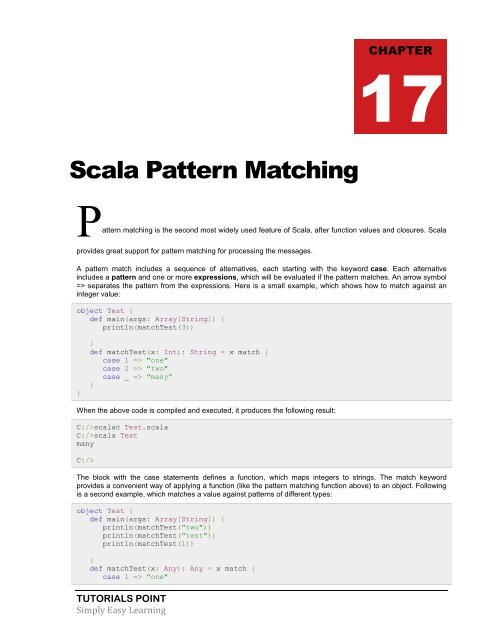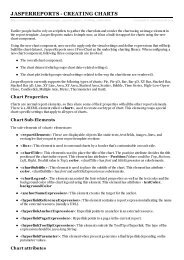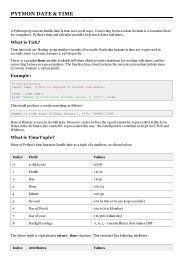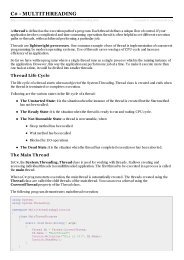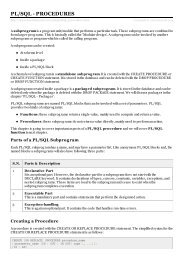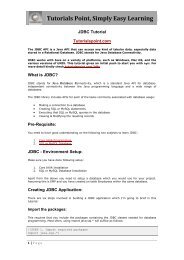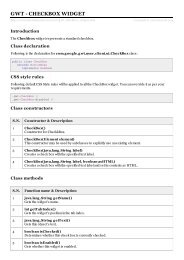Download Scala Tutorial (PDF Version) - Tutorials Point
Download Scala Tutorial (PDF Version) - Tutorials Point
Download Scala Tutorial (PDF Version) - Tutorials Point
Create successful ePaper yourself
Turn your PDF publications into a flip-book with our unique Google optimized e-Paper software.
CHAPTER<br />
17<br />
<strong>Scala</strong> Pattern Matching<br />
Pattern matching is the second most widely used feature of <strong>Scala</strong>, after function values and closures. <strong>Scala</strong><br />
provides great support for pattern matching for processing the messages.<br />
A pattern match includes a sequence of alternatives, each starting with the keyword case. Each alternative<br />
includes a pattern and one or more expressions, which will be evaluated if the pattern matches. An arrow symbol<br />
=> separates the pattern from the expressions. Here is a small example, which shows how to match against an<br />
integer value:<br />
object Test {<br />
def main(args: Array[String]) {<br />
println(matchTest(3))<br />
}<br />
}<br />
def matchTest(x: Int): String = x match {<br />
case 1 => "one"<br />
case 2 => "two"<br />
case _ => "many"<br />
}<br />
When the above code is compiled and executed, it produces the following result:<br />
C:/>scalac Test.scala<br />
C:/>scala Test<br />
many<br />
C:/><br />
The block with the case statements defines a function, which maps integers to strings. The match keyword<br />
provides a convenient way of applying a function (like the pattern matching function above) to an object. Following<br />
is a second example, which matches a value against patterns of different types:<br />
object Test {<br />
def main(args: Array[String]) {<br />
println(matchTest("two"))<br />
println(matchTest("test"))<br />
println(matchTest(1))<br />
}<br />
def matchTest(x: Any): Any = x match {<br />
case 1 => "one"<br />
TUTORIALS POINT<br />
Simply Easy Learning


